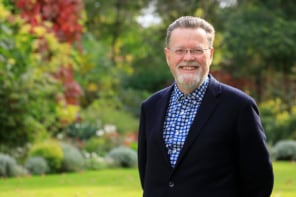
A group of 16 major physics societies around the world have come together to support open-access publishing and welcome the increased “policy momentum” towards it. Yet in a joint statement, the societies urge policy makers to preserve the “diversity, quality and financial sustainability” of peer-reviewed publishing. They also warn that certain policies, such as the proposed cOAlition S “rights retention strategy”, could “undermine the viability of high-quality hybrid journals”.
Physics has been at the forefront of open access ever since the arXiv pre-print server was founded in 1991. While arXiv provides access to early drafts of scientific articles, the final peer-reviewed versions of the papers have traditionally been accessible to readers only through an institutional subscription. Open-access publishing, however, removes the requirement for subscriptions: by charging authors instead a fee, known as an article-processing charge (APC), articles are made immediately and freely available for anyone to read.
Over the past decade, the total number of papers in physics has grown by an average of 2% a year, but the number of open-access papers in physics has surged by about 25% a year. Despite this progress, however, more than 85% of physics articles are published in “hybrid journals”, which are publications that remain subscription based but give authors the choice to make their papers open access by paying an APC.
Undermining quality
One of the biggest open-access drives underway is Plan S, which seeks to make research papers open access immediately after publication. Unveiled in September 2018 by 11 national research funding organizations — dubbed cOAlition S – their goal is that from 2021 “all scholarly publications on the results from research funded by public or private grants provided by national, regional and international research councils and funding bodies, must be published in open access journals, on open access platforms, or made immediately available through open access repositories without embargo”.
Backed by funding bodies such as UK Research and Innovation and the French National Research Agency, Plan S does not support the hybrid model but acknowledges a “transitional pathway” towards fully open access “within a clearly defined timeframe, and only as part of transformative arrangements”. cOAlition S has also developed its rights retention strategy, which would give researchers supported by a cOAlition S Organizations “the freedom to publish in their journal of choice, including subscription journals, whilst remaining fully compliant with Plan S”.
Significantly, however, cOAlition S wants publishers to modify their existing publishing agreements so that authors can make their “accepted manuscripts” — those that have been accepted for publication and include author-incorporated changes suggested during peer review but may not be in their final form — available at the time of publication under a “CC BY” licence. Such a move would allow the work to be copy and distributed with attribution. The reality of open access
The 16 societies, which include the Institute of Physics, which publishes Physics World, as well as the American Physical Society and the Chinese Physical Society, maintain, however that the right retention policy would “undermine the viability of high-quality hybrid journals”. They also say that the move would mean that many physics researchers “no longer have an adequate range of options or freedom of choice in where they publish their work”.
The societies instead call for a “pragmatic, inclusive and sustainable approach to open access”, which includes broader international financial support for open access to be in place before hybrid journals can fully transition to open access.



